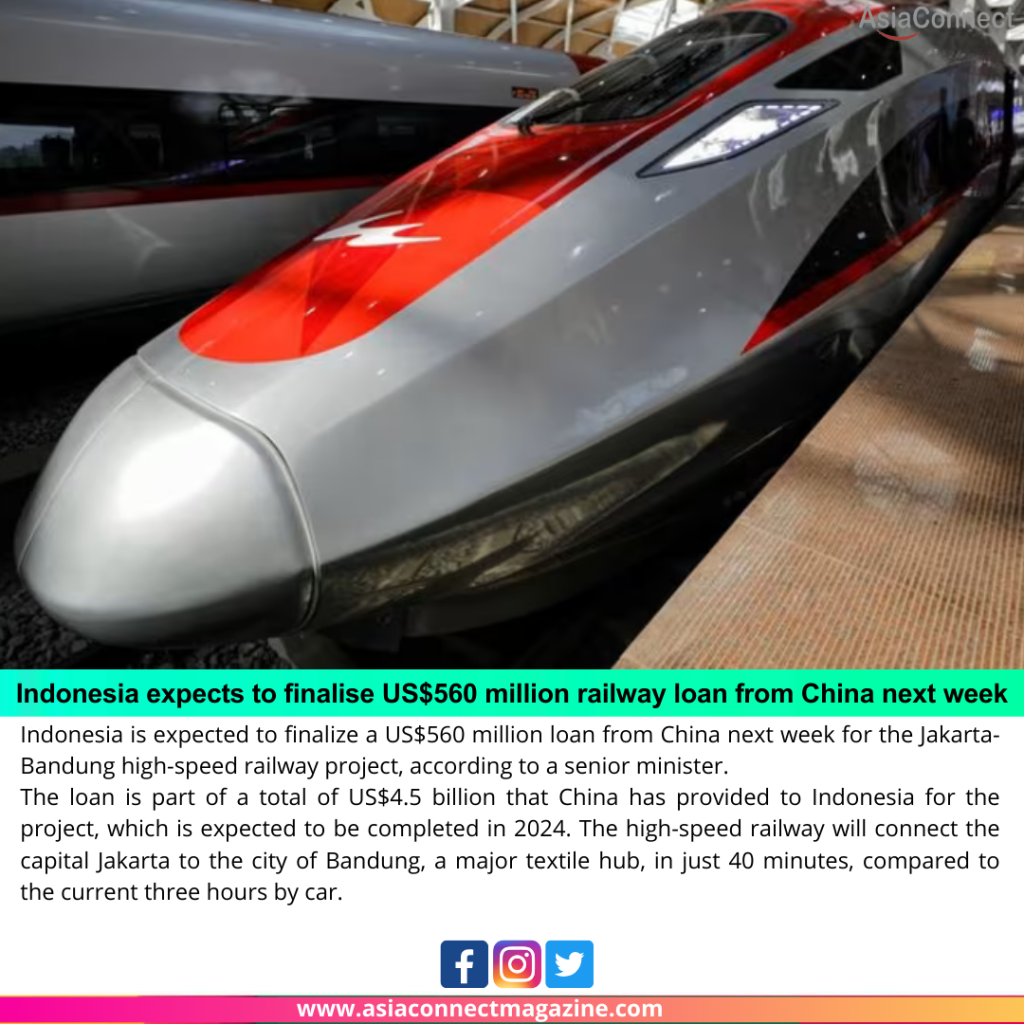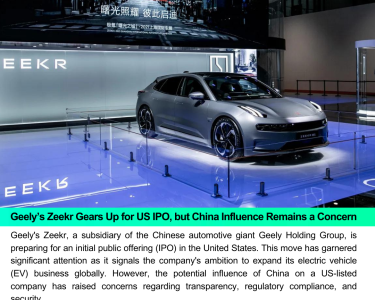
Indonesia expects to finalise US$560 million railway loan from China next week
Indonesia is expected to finalize a US$560 million loan from China next week for the Jakarta-Bandung high-speed railway project, according to a senior minister.
The loan is part of a total of US$4.5 billion that China has provided to Indonesia for the project, which is expected to be completed in 2024. The high-speed railway will connect the capital Jakarta to the city of Bandung, a major textile hub, in just 40 minutes, compared to the current three hours by car.
The additional loan is needed to cover cost overruns due to delays in construction and the rising price of materials. The project has been plagued by problems since it began in 2016, including land acquisition issues and environmental concerns.
The Indonesian government has said that it is committed to completing the project, as it is seen as a key infrastructure project that will boost the country’s economy. However, some critics have raised concerns about the high cost of the project and the fact that it is being financed by China.
The Chinese government has been investing heavily in infrastructure projects around the world in recent years, as part of its Belt and Road Initiative. The Belt and Road Initiative is a global development strategy that aims to connect China to other countries through trade and infrastructure projects.
The Chinese government has said that the Belt and Road Initiative will benefit all countries involved. However, some critics have accused China of using the Belt and Road Initiative to trap developing countries in debt.
The Indonesian government has said that it is confident that it will be able to repay the loan from China. However, some economists have warned that the loan could put a strain on Indonesia’s finances, especially if the country’s economy slows down.
The pros and cons of the Indonesia-China high-speed railway project
The Indonesia-China high-speed railway project has both pros and cons.
Pros:
- The project will reduce travel time between Jakarta and Bandung from three hours to just 40 minutes.
- The project will boost the Indonesian economy by creating jobs and stimulating economic activity in the Bandung region.
- The project will improve connectivity between Indonesia and China, which is Indonesia’s largest trading partner.
Cons:
- The project is expensive, with a total cost of US$4.5 billion.
- The project has been plagued by problems since it began in 2016, including land acquisition issues, environmental concerns, and cost overruns.
- The project is being financed by China, which has been accused of using the Belt and Road Initiative to trap developing countries in debt.
Conclusion
The Indonesia-China high-speed railway project is a major infrastructure project that will have a significant impact on Indonesia’s economy and its relationship with China. The project has both pros and cons, and it is important to weigh the benefits and risks carefully before making a decision about whether or not to support the project.




